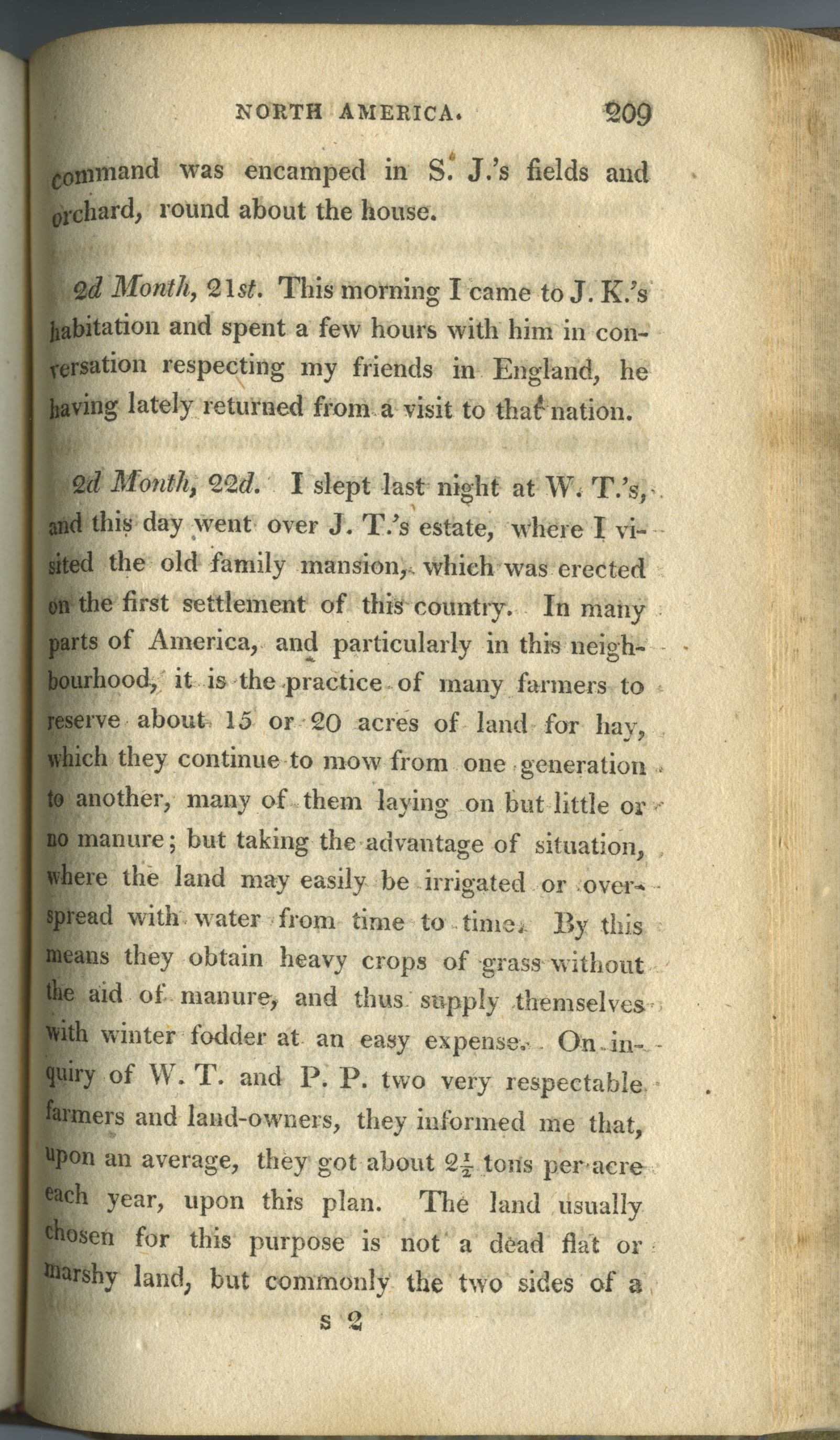command was encamped in S. J.'s fields and
orchard, round
about the house.
This morning I came to J. K.'s
habitation and spent a few hours with him in
con-
versation respecting my friends in England, he
having lately
returned from a visit to that nation.
I slept last night at W. T.'s,
and this day went over J. T.'s estate, where
I vi-
sited the old family mansion, which was erected
on the first
settlement of this country. In many
parts of America, and particularly in
this neigh-
bourhood, it is the practice of many farmers to
reserve
about 15 or 20 acres of land for hay,
which they continue to mow from one
generation
to another, many of them laying on but little or
no manure;
but taking the advantage of situation,
where the land may easily be
irrigated or over
spread with water from time to time. By this
means
they obtain heavy crops of grass without
the aid of manure, and thus supply
themselves
with winter fodder at an easy expense. On in-
quiry of W.
T. and P. P. two very respectable
farmers and land-owners, they informed me
that,
upon an average, they got about 2 1/2 tons per acre
each year,
upon this plan. The land usually
chosen for this purpose is not a dead flat
or
marshy land, but commonly the two sides of a

